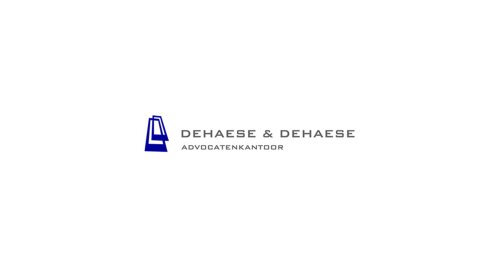Best Antitrust Lawyers in Hasselt
Share your needs with us, get contacted by law firms.
Free. Takes 2 min.
List of the best lawyers in Hasselt, Belgium
About Antitrust Law in Hasselt, Belgium
Antitrust law in Belgium is commonly called competition law. It protects open and fair competition so that businesses compete on the merits and consumers benefit from choice, quality, and fair prices. In Hasselt and the wider Limburg province, the same Belgian and European Union rules apply. Local businesses in manufacturing, logistics, retail, technology, and services must comply with both Belgian rules and EU rules whenever their activities may affect trade within Belgium or across EU borders.
Typical antitrust issues include cartels such as price fixing or bid rigging, restrictions in distribution agreements, abuse of a dominant market position, and mergers that could significantly reduce competition. Investigations are handled by the Belgian Competition Authority and, in some cases, by the European Commission. Civil courts can also award damages to parties harmed by anticompetitive conduct.
Why You May Need a Lawyer
Antitrust matters are complex and time sensitive. You may need a competition lawyer in situations such as:
- You receive a dawn raid visit or an information request from the Belgian Competition Authority or the European Commission.
- Your business is considering a merger, acquisition, joint venture, or other structural deal that may require merger control notification.
- You want to set up distribution, pricing, exclusivity, or online sales policies and need to ensure they comply with Belgian and EU rules.
- You suspect a competitor is engaging in illegal conduct such as bid rigging, price fixing, market sharing, or exclusionary tactics, and you are considering a complaint or damages claim.
- Your company has a significant market share and needs guidance to avoid abuse of dominance risks.
- You are considering applying for leniency or settlement to reduce exposure in relation to a cartel.
- You need to create or update an antitrust compliance program and train staff, including sales and procurement teams.
Local Laws Overview
- Core legislation: Belgian competition rules are contained in the Code of Economic Law, notably Book IV Protection of competition. These rules sit alongside and interact with EU competition law, particularly Articles 101 and 102 of the Treaty on the Functioning of the European Union.
- Enforcement bodies: The Belgian Competition Authority handles investigations and decisions. Its bodies include the Investigation and Prosecution Service and the Competition College. Sector regulators may cooperate in specific industries. The European Commission may take over cases that affect trade between EU Member States.
- Prohibited agreements: Hardcore restrictions such as price fixing, market sharing, output limitations, and bid rigging are strictly prohibited. Vertical restraints in distribution, such as resale price maintenance, territorial restrictions, and online sales restrictions, are assessed under Belgian law aligned with EU block exemptions and guidelines.
- Abuse of dominance: Companies with significant market power must not engage in exclusionary or exploitative conduct, such as unjustified refusals to supply, predatory pricing, loyalty rebates with foreclosure effects, or unfair trading conditions.
- Merger control: Certain mergers, acquisitions, and joint ventures must be notified to the Belgian Competition Authority before closing. Belgium applies turnover thresholds to determine when filing is required. There is a suspensory regime, meaning the transaction cannot be implemented until cleared. Reviews are conducted in phases with statutory deadlines measured in working days.
- Investigative tools: Authorities can conduct unannounced inspections called dawn raids, require documents and data, and interview staff. Obstruction can lead to separate penalties. Legal professional privilege and privacy rules apply, but must be asserted properly.
- Sanctions and remedies: Infringements can lead to substantial administrative fines, periodic penalty payments, and legally binding commitments. Individuals and companies harmed by anticompetitive conduct can claim damages before civil courts. Settlements and leniency are available under specific conditions.
- Private enforcement: Belgium has implemented EU rules that facilitate damages actions, including access to evidence, rules on joint and several liability, and limitation periods.
- Local courts: In business disputes linked to competition issues, the Enterprise Court of Antwerp, Hasselt division, may have jurisdiction. The language of proceedings in Hasselt is typically Dutch, subject to Belgian language rules in judicial matters.
Frequently Asked Questions
What is the difference between Belgian and EU antitrust rules?
Belgian rules in the Code of Economic Law mirror EU principles. If conduct may affect trade between Member States, EU law applies alongside Belgian law. Belgian authorities and courts apply EU case law and guidance, and the European Commission can take the lead in significant cross border cases.
When does a merger or acquisition need to be filed in Belgium?
Filing is required when turnover thresholds set by law are met. These thresholds look at sales achieved in Belgium by the parties involved. If the thresholds are met, the transaction must be notified before closing and cannot be implemented until cleared. A competition lawyer can test the thresholds early in the deal timetable.
What should I do during a dawn raid in Hasselt?
Remain calm, cooperate, and contact your competition counsel immediately. Verify inspectors identities, secure legal privilege, avoid destroying or hiding documents, and follow an internal dawn raid protocol. Ensure staff understand their rights and duties, including how to handle searches of digital devices and emails.
Is it illegal to set resale prices for distributors?
Imposing fixed or minimum resale prices is generally prohibited and considered a serious restriction. Recommended or maximum prices can be acceptable if they do not function as fixed or minimum prices. Each distribution strategy should be reviewed for compliance with Belgian and EU vertical rules.
How is a dominant position assessed?
Dominance is about market power, not just market share. Authorities look at market shares, barriers to entry, buyer power, network effects, and the competitive landscape. A high and sustained market share can indicate dominance, but the analysis is fact specific.
Can I collaborate with competitors?
Certain collaborations, like joint R and D or standard setting, can be lawful if they bring efficiencies and do not eliminate competition. However, exchanging sensitive current or future pricing or strategic information, fixing prices, or allocating customers is prohibited. Use clean team protocols and seek legal advice.
What is leniency and should we consider it?
Leniency allows the first cartel participant to report and provide evidence in exchange for immunity or a reduction in fines. Later applicants may receive partial reductions. Timing, completeness, and cooperation are critical. Speak to counsel urgently if you suspect cartel conduct.
How long does a Belgian merger review take?
There is a short initial review phase and, if needed, an in depth phase. Statutory deadlines are measured in working days and can be extended when remedies are offered or information is missing. Many non problematic deals are cleared in the initial phase.
Can I claim damages in a Belgian court for antitrust harm?
Yes. Victims of anticompetitive conduct can sue for full compensation, including actual loss and loss of profit, plus interest. Belgian law contains rules that facilitate access to evidence and clarify liability. Claims related to conduct affecting Hasselt businesses are typically brought before the competent Enterprise Court.
Are there special rules for online sales and platforms?
Yes. Belgian law applies EU vertical rules to online distribution, marketplace bans, dual pricing, and parity clauses. The assessment focuses on preserving intra brand and inter brand competition while allowing genuine efficiencies. Platform providers and hybrid retailers should obtain tailored advice.
Additional Resources
- Belgian Competition Authority, including the Investigation and Prosecution Service and the Competition College.
- European Commission, Directorate General for Competition.
- Federal Public Service Economy, Directorate General for Economic Regulation.
- Enterprise Court of Antwerp, Hasselt division registry for procedural information.
- Flemish Bar Association and the Limburg Bar for locating qualified competition lawyers.
- Belgian Official Journal and the Belgian Competition Authority website for published decisions and guidelines.
Next Steps
- Preserve evidence: Implement a litigation hold. Suspend routine deletion of emails and files. Keep clean records of business justifications for key decisions.
- Get immediate legal advice: If you receive an information request or dawn raid, contact a competition lawyer without delay. Early strategy decisions can significantly affect outcomes.
- Assess risk: Conduct a privileged internal review of pricing, sales, procurement, and competitor contacts. Map any trade association memberships and data sharing arrangements.
- Consider leniency or settlement: If there is exposure to cartel conduct, evaluate whether to approach the authority for leniency or to explore settlement options.
- Plan transactions: For mergers and joint ventures, screen Belgian thresholds and any EU implications early. Build realistic filing timelines into your deal plan and consider potential remedies.
- Update compliance: Roll out or refresh an antitrust compliance program. Train staff in Hasselt and other locations on do and do not rules, dawn raid protocols, and record keeping.
- Choose local counsel: Select a lawyer experienced in Belgian and EU competition law, familiar with proceedings before the Belgian Competition Authority and local courts in Hasselt. Confirm working language needs and availability for urgent response.
- Monitor developments: Competition rules and guidance evolve. Keep an eye on updated block exemptions, digital market guidance, and enforcement priorities that may affect your sector.
Lawzana helps you find the best lawyers and law firms in Hasselt through a curated and pre-screened list of qualified legal professionals. Our platform offers rankings and detailed profiles of attorneys and law firms, allowing you to compare based on practice areas, including Antitrust, experience, and client feedback.
Each profile includes a description of the firm's areas of practice, client reviews, team members and partners, year of establishment, spoken languages, office locations, contact information, social media presence, and any published articles or resources. Most firms on our platform speak English and are experienced in both local and international legal matters.
Get a quote from top-rated law firms in Hasselt, Belgium — quickly, securely, and without unnecessary hassle.
Disclaimer:
The information provided on this page is for general informational purposes only and does not constitute legal advice. While we strive to ensure the accuracy and relevance of the content, legal information may change over time, and interpretations of the law can vary. You should always consult with a qualified legal professional for advice specific to your situation.
We disclaim all liability for actions taken or not taken based on the content of this page. If you believe any information is incorrect or outdated, please contact us, and we will review and update it where appropriate.









